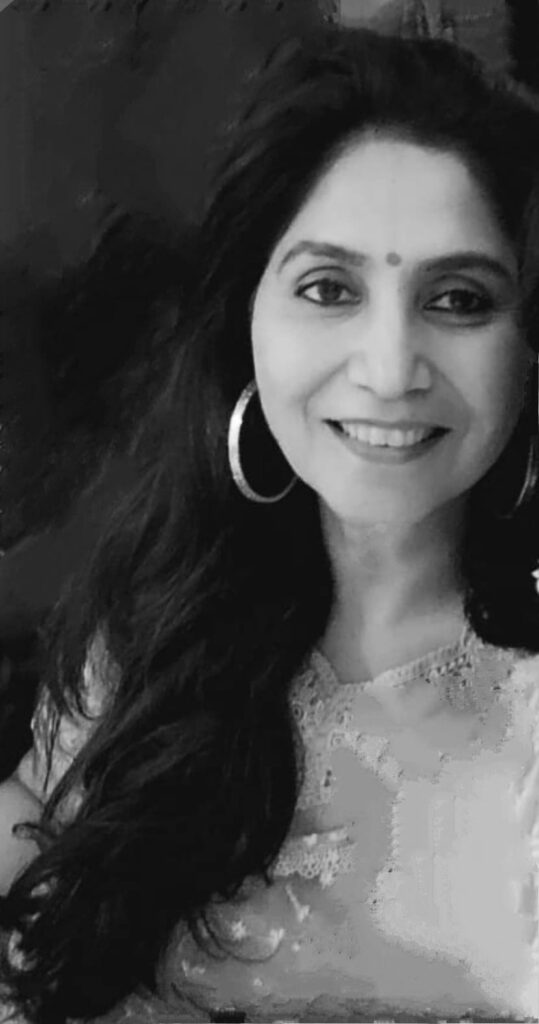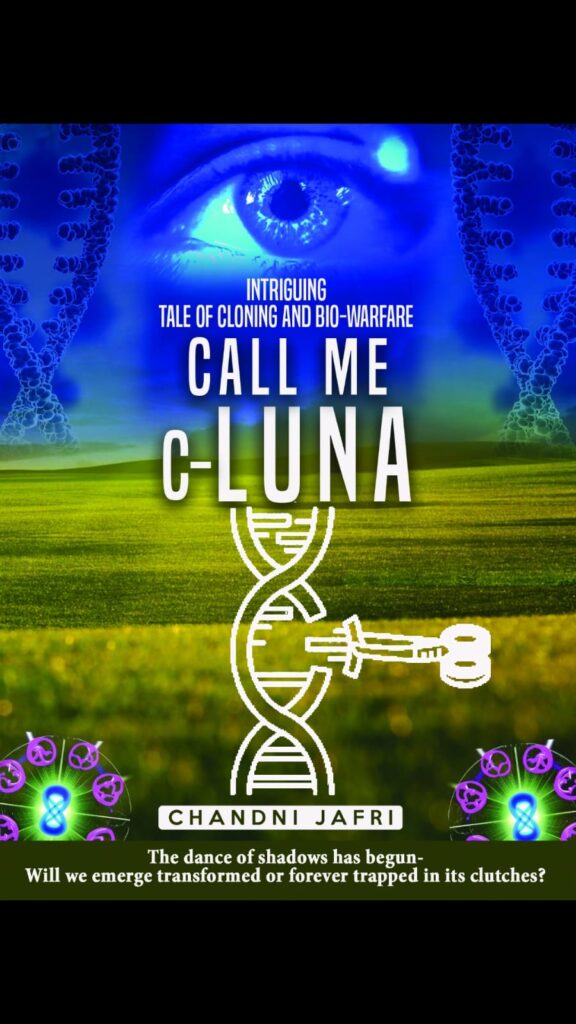SLSV, in conversation with Chandni Jafri, author of Call Me c-Luna- a fictional thriller inspired by real-life developments and scientific advancements in animal cloning and genetic engineering.

SLSV: What is “Call Me c-Luna” about, and how does it address the topic of consuming milk from cloned cows?
Chandni: “Call Me c-Luna” is a thrilling novel set in the world where genetic engineering and animal cloning technology has reached unprecedented levels. It explores the consequences of unchecked scientific advancements and how genetic manipulation can impact human health, animal welfare, and trigger biowarfare. The story revolves around the potential risks and ethical dilemmas surrounding cloned cow milk production and its consequences.
SLSV: What real-world inspirations or scientific developments influenced the book’s themes?
Chandni: Ongoing scientific studies, animal clones for food debates, and consumer movements globally have inspired the book’s themes. Real-world cases of genetic modification have raised questions about long-term health effects and exposed glaring animal welfare issues. The recent cases of China producing Super Cows, India’s first cloned calf, and the EU and US struggling with regulatory challenges made this a relevant topic for exploration.
SLSV: Why is consuming milk from cloned cows a matter of concern, particularly regarding human health?
Chandni: Consuming milk from cloned cows is a topic of concern due to potential health risks that need to be investigated over long-term trials. Cloned animals may carry unforeseen genetic abnormalities that could affect the safety and quality of dairy products. There’s a need for rigorous research and regulatory oversight to ensure consumer safety. So far, 5–10% of clones go on to live a normal, healthy lifespan. In the surviving clones, some abnormalities may not show up until later in life. The most common causes of death in clones are late-developing musculoskeletal problems so severe that the cows need to be euthanized.
SLSV: What advice do you have for consumers concerned about milk and dairy products in the context of genetic engineering?
Chandni: To make informed choices about dairy products, consumers should stay informed about food sources. Seek products with clear labelling, indicating they are not derived from cloned animals. Health-conscious individuals and consumers with underlying health conditions could also consider alternative milk sources, like plant-based options. Keep an eye on developments in biotechnology and engage in discussions on their potential impact in public forums and social media.
SLSV: How do the concerns in “Call Me c-Luna” mirror real-world debates, and what should regulatory bodies consider?
Chandni: The novel reflects concerns in real-world genetic engineering and consumer forum debates. As genetic engineering advances, we must establish clear regulations to ensure ethical and safe practices. Regulatory bodies need to address potential health risks and animal welfare concerns. e.g., how the USFDA is struggling with the challenge of ensuring that only ‘healthy’ clones enter the food supply. This challenge increases exponentially in countries like India, which have a large population and relatively poor infrastructure.
SLSV: In “Call Me c-Luna,” animal cloning is portrayed as a practice with a high level of mortality across all stages and low success rates. How does that correspond to the real world?
Chandni: Call Me C-Luna is an accurate depiction of animal welfare issues. Biotechnology has produced a range of animals that sound like horrors from science fiction. These anomalies are probably due to incorrect epigenetic reprogramming of the donor genome. Multiple studies highlight the high mortality rates for surrogates as well as clones. The EFSA study concluded that ‘the health and welfare of a significant proportion of cloned animals was adversely affected, often severely and fatally’. They found that death and illness in the early stages of life (due to cardiovascular failure, immunodeficiencies, liver failure, respiratory problems, and kidney and musculoskeletal abnormalities) occur more frequently in cloned animals than in sexually produced animals. Also, LOS, miscarriage, and problems during pregnancy were seen to occur disproportionately in the surrogate mothers of clones.
SLSV: What does the metaphor of “genetic domination” signify in the context of the book?
Chandni: “Genetic domination” is a metaphor for unchecked biotechnological power. Whoever masters genetic engineering and animal cloning indeed possesses the key to potentially dominating the world. Control over food sources, medicine, and even the development of entirely new life forms could tip the scales of power on a global scale.
SLSV: “Call Me c-Luna” envisions a world where animals are treated as sentient beings and guides, and cow-cuddling farms have replaced traditional dairy farms. How does this portrayal challenge our current relationship with animals, and what inspired this vision?
Chandni: The book challenges the conventional view of animals as mere resources and explores a world where animals are regarded as sentient beings and guides. This vision is inspired by the rising social and environmental consciousness in the post-Covid world. Besides, traditional dairy farms are one of the biggest contributors to the climate crisis, and most are struggling to maintain profitability and hence are no longer sustainable. The cow-cuddling farm is inspired by the ‘cuddle a cow trend’, known as ‘Koe Knuffelen’ in Dutch, which originated from the farms of the Netherlands. It’s a form of self-care and one of the leading wellness trends that is now practiced in countries such as Switzerland, the United States, India, the Netherlands, etc.
SLSV: What message or reflection do you hope readers take away from “Call Me c-Luna” regarding the consequences of unchecked genetic engineering?
Chandni: The book encourages readers to contemplate the consequences of unchecked genetic engineering and animal cloning, alerts them about the human and animal health catastrophe, and reminds them of their right to demand transparency. It leaves the reader with a clear understanding of the looming threat we are facing and shares a blueprint for how to overcome the threat and create a more compassionate and sustainable world.

Chandni Jafri is a triple bottom-line proponent, CEO, Founder, Investor and consults on building sustainable and profitable businesses. Call Me c-Luna is available on amazon.in and flipkart in India. Globally through amazon.com and amazon.co.uk .
